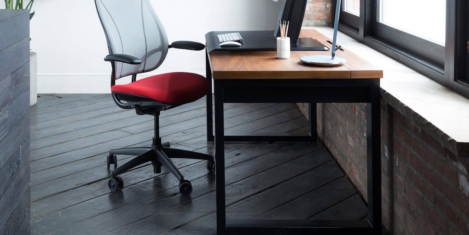January 25, 2018
Two fifths of people think their jobs will be obsolete within a decade
 A new survey from job site Jobbio claims that more than two fifths of British workers think their job will be obsolete in as little as ten years, compared to over a third of those in the US. Respondents believe roles such as travel agents, telemarketers and factory workers will all disappear. in the longer term, a little over two-fifths of 2,000 British respondents (41 percent) think that they won’t be able to retire until the ages of 70-74 in 2050 with less than a fifth (14 percent) thinking they will get to retire under the age of 65. The survey focuses on the issue of happiness and what makes people happy at work. It found that there are some marked differences between the two countries although people are universally keen to address the issue of work life balance.
A new survey from job site Jobbio claims that more than two fifths of British workers think their job will be obsolete in as little as ten years, compared to over a third of those in the US. Respondents believe roles such as travel agents, telemarketers and factory workers will all disappear. in the longer term, a little over two-fifths of 2,000 British respondents (41 percent) think that they won’t be able to retire until the ages of 70-74 in 2050 with less than a fifth (14 percent) thinking they will get to retire under the age of 65. The survey focuses on the issue of happiness and what makes people happy at work. It found that there are some marked differences between the two countries although people are universally keen to address the issue of work life balance.










 The UK has been ranked as the eighth best country in the world for the ability to attract, retain, train and educate skilled workers, but while its ability to leverage diversity for talent competitiveness is boosted by its global knowledge skills – the UK is undermined by its weaker performance on tolerance and gender equality. According to the Global Talent Competitiveness Index GTCI) produced by the Adecco Group, with international business school INSEAD and Tata Communications, the UK has a particularly strong pool of global knowledge skills, a variable for which it is ranked third in the index boosted further by its strong regulatory, market and business landscape. But this is undermined by its internal openness, where it still lags behind, especially when it comes to gender equality. The report also suggests that although Article 50 was triggered in 2017, the ongoing negotiations and continuing lack of clarity over the UK’s position once it leaves the European Union in 2019, means the impact of Brexit is not yet clear.
The UK has been ranked as the eighth best country in the world for the ability to attract, retain, train and educate skilled workers, but while its ability to leverage diversity for talent competitiveness is boosted by its global knowledge skills – the UK is undermined by its weaker performance on tolerance and gender equality. According to the Global Talent Competitiveness Index GTCI) produced by the Adecco Group, with international business school INSEAD and Tata Communications, the UK has a particularly strong pool of global knowledge skills, a variable for which it is ranked third in the index boosted further by its strong regulatory, market and business landscape. But this is undermined by its internal openness, where it still lags behind, especially when it comes to gender equality. The report also suggests that although Article 50 was triggered in 2017, the ongoing negotiations and continuing lack of clarity over the UK’s position once it leaves the European Union in 2019, means the impact of Brexit is not yet clear.












 Managers are working an extra 44 days a year over and above their contracted hours, up from 40 days in 2015. These long hours are taking their toll, causing a surge in sick leave amongst managers suffering from stress and mental ill health, claims the Chartered Management Institute (CMI), which is calling on UK employers to provide greater support. Long hours and constant communication are having a detrimental effect on the wellbeing of managers it argues resulting in one in ten managers taking time off for mental health in the last year, and for those who do take time out, it’s for an average of 12 days. Of the 1,037 managers surveyed for the report, the average boss puts in an extra day each week. This is an extra 7.5 hours beyond their contracted weekly hours (44.4 hours actual compared to 37.3 contracted), adding up to an extra 43.8 days over the course of the year. This is up from 39.6 days in 2015. The rising gap between contracted and actual hours of work is in addition to an ‘always on’ digital culture, with 59 percent of managers saying they ‘frequently’ check their emails outside of work – up from 54 percent in 2015.
Managers are working an extra 44 days a year over and above their contracted hours, up from 40 days in 2015. These long hours are taking their toll, causing a surge in sick leave amongst managers suffering from stress and mental ill health, claims the Chartered Management Institute (CMI), which is calling on UK employers to provide greater support. Long hours and constant communication are having a detrimental effect on the wellbeing of managers it argues resulting in one in ten managers taking time off for mental health in the last year, and for those who do take time out, it’s for an average of 12 days. Of the 1,037 managers surveyed for the report, the average boss puts in an extra day each week. This is an extra 7.5 hours beyond their contracted weekly hours (44.4 hours actual compared to 37.3 contracted), adding up to an extra 43.8 days over the course of the year. This is up from 39.6 days in 2015. The rising gap between contracted and actual hours of work is in addition to an ‘always on’ digital culture, with 59 percent of managers saying they ‘frequently’ check their emails outside of work – up from 54 percent in 2015.
 Two-thirds (64 percent) of employees have gone to work despite being unwell over the last 12 months, claims a new survey which found that a quarter (26 percent) of people worried that their absence will be a burden on their team. The research by Bupa shows that more than one in four (27 percent) employees ignore their doctor’s orders to stay at home and ‘soldier on’. A third of employees would go to work despite back pain or issues related to their joints and, disturbingly, a similar number (29 percent) head to work when suffering from mental health issues such as depression. As two of the most common reasons to be signed off work, Bupa’s experts fear these employees risk worsening their health, increasing the likelihood that they’ll need a prolonged period of time off work further down the line. The findings come at a time when increasing productivity is a strategic goal for most business leaders in 2018. But high levels of ‘presenteeism’ are in fact associated with loss of productivity and reduced performance – as employees who push themselves into work when unwell, risk delaying their own recovery
Two-thirds (64 percent) of employees have gone to work despite being unwell over the last 12 months, claims a new survey which found that a quarter (26 percent) of people worried that their absence will be a burden on their team. The research by Bupa shows that more than one in four (27 percent) employees ignore their doctor’s orders to stay at home and ‘soldier on’. A third of employees would go to work despite back pain or issues related to their joints and, disturbingly, a similar number (29 percent) head to work when suffering from mental health issues such as depression. As two of the most common reasons to be signed off work, Bupa’s experts fear these employees risk worsening their health, increasing the likelihood that they’ll need a prolonged period of time off work further down the line. The findings come at a time when increasing productivity is a strategic goal for most business leaders in 2018. But high levels of ‘presenteeism’ are in fact associated with loss of productivity and reduced performance – as employees who push themselves into work when unwell, risk delaying their own recovery









